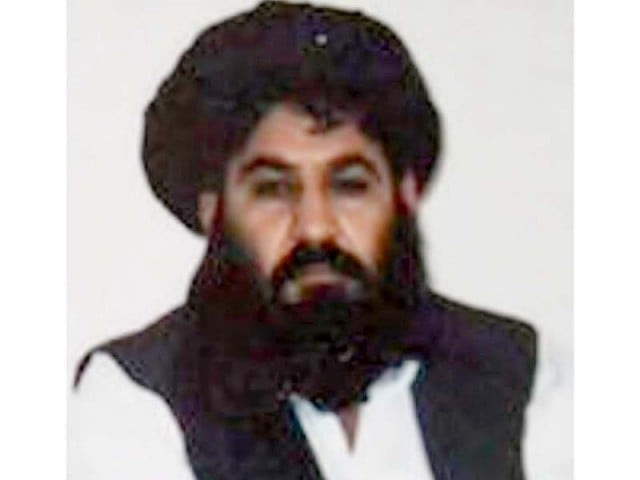Neighborhood Watch: Taliban power struggle mars chances of peace, for now
Decision of clerics mediating between differing sides awaited

New Taliban leader Mullah Akhtar Mansoor. PHOTO: FILE
The new Taliban chief, Mullah Akhtar Mansoor, has strengthened his control on the group over the past few weeks while his rivals are involved in wrangling on the nomination of a new leader and are now expecting a favourable verdict by a group of religious clerics mediating between the differing sides.
The clerics’ head, Maulvi Ahmad, snubbed earlier by Mansoor, finally met the new Taliban head this week. However, he again received a cold shoulder response. Mansoor had refused to empower the clerics to unseat him or make a decision as to who should lead the Taliban after Mullah Omar.
The dissident Taliban leaders have confided to The Express Tribune that they are ‘convincing’ Mullah Abdul Manan, Mullah Omar’s brother, to lead them as they could not find any person to challenge Mansoor. Manan’s appointment could be a boost for the anti-Mansoor side as he is ‘one from the family’.
Mullah Yaqoob, Omar’s son, has quit the race but he is supporting his uncle, some Taliban leaders claim. The dissidents now await a final verdict by the clerics, who are accused by some Mansoor supporters of siding with the dissidents
The major international players of the region, including the United States, Pakistan and China, seem frustrated at the deadlock in the reconciliation process and are reportedly making efforts to bring the peace talks back on track. Senior foreign military commanders and diplomats visited Pakistan this week and it is widely believed the revival of the Afghan peace process and decreasing tensions on the Durand Line were the main items on their agenda.
On Friday, a visiting top Chinese official held meetings in Islamabad on regional security issues, including Afghanistan. The visit of the director-general of the department of external security affairs at the Ministry of Foreign Affairs, China is seen in the context of the fast changing situation in the region.
Also this week, chief of the US central command Gen Lloyd Austin held talks with Joint Chiefs of Staff Committee Chairman General Rashad Mahmood and army chief General Raheel Sharif in Rawalpindi and “appreciated Pakistan Army’s sacrifices in the war on terror for bringing peace in the country and the region,” an army statement said. The European Union’s Special Representative in Afghanistan, Franz-Michael Skjold Mellbin, who also traveled to Islamabad, seems hopeful about the revival of the Afghan peace process.
“My belief is that the Taliban sooner or later, as it consolidates the future leadership, will have the same will as it had before or the same lack of will that it had before to engage in meaningful peace talks; peace talks that will take a long time to develop for sure,” he told a seminar at a think tank in Islamabad.
The envoy said the National Unity Government in Afghanistan is committed to reconciliation with the Taliban and better relations with Pakistan.
“The good news is that talks are going on in Kabul as we speak. They are deciding to try to revitalise [Afghan President Ashraf] Ghani’s original outreach to Pakistan and his ideas for creating a peace and reconciliation process with the Taliban.” But at the same time he cautioned against attempts by detractors to frustrate the process.
“I believe on the Afghan side there is an opportunity and that needs to be seized because there are also risks for deepening of the fairly low temperatures that are marring the relationship right now, a risk that there are non-state actors that are jumping to the space,” he said.
The war goes on
The differences among the Taliban and the Kabul government have had little impact on Taliban offensives as the group overran a strategic district in southern Afghanistan this week.
Taliban fighters advanced at Musa Qila, forcing the Afghan forces to flee. As part of psychological warfare to invite the media’s attention and boost morale of fighters on the ground, the Taliban sent to media outlets enormous videos and photos of the Taliban assault.
The Taliban’s media wing even used the mobile service WhatsApp to share intercepted phone conversations among Afghan National Army soldiers who were discussing their inability to counter the Taliban attack.
Published in The Express Tribune, August 29th, 2015.













COMMENTS
Comments are moderated and generally will be posted if they are on-topic and not abusive.
For more information, please see our Comments FAQ